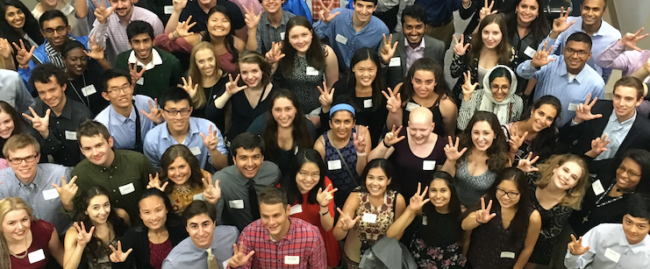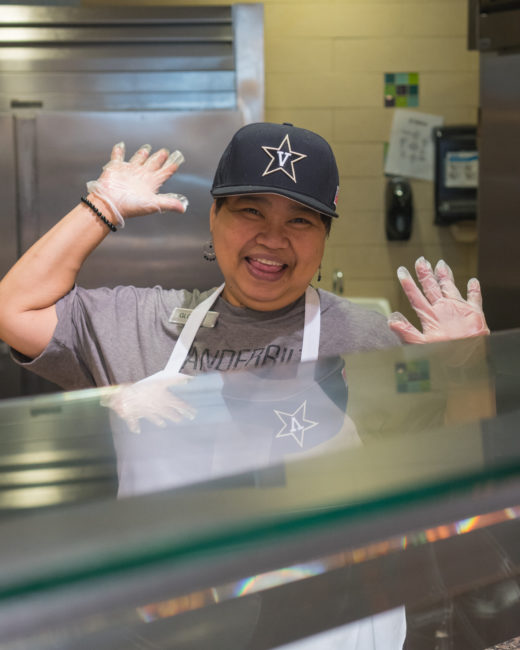When Leading is Leadership, and When It Isn’t (The 3rd Thing I learned Junior Year)
Wow, this is a really long post! Thanks for reading :)
I didn’t know that I could be a leader coming into college. Sure, it was a sexy word– all the “leadership conferences,” “summits,” “trainings”… but it wasn’t one that I felt applied to me. In high school, I wasn’t president of the Math Honor Society nor any leadership position in NHS. I hadn’t started a student organization at all. I wasn’t captain of the cross country team – goodness, I barely made it through my first season – so my leadership of teams felt short. Although I did end up being the president of one org by senior year, it was relatively small, and while it taught me a lot, it never made me feel like any sort of leader.
Now, before we begin, from what I’ve seen, there are three kinds of leadership. The first is founding the organization or group or initiative. That takes the brainstorming, the initial emails and phone calls, getting the quotes on finances, input from others, etc. The second is once the initial paperwork is complete and thing is “recognized,” transitioning to a stable period where the leadership can be passed down to someone else without fear of everything falling apart. The third is assuming the position of leadership that keeps things stable, changing a few small things, maybe starting some new, big events, but fundamentally keeping the mission of the organization related to the original mission and doing some sort of maintenance (with improvements!) to what already has been created. This requires a very special mindset of consistency and understanding of the mission, while also being open to change.
I’m definitely best at the first type, and can do the second. I’m absolutely terrible at the third. I would rather appoint someone or delegate that work out to people who are so consistent, reliable, and trustworthy; I love change, brainstorming, and creating things so much. Growing in the third type of leadership is definitely going to be a goal of mine, although I’m not sure if I’ll pursue this in college.
So! What has leadership taught me?
My first major leadership position was about finding gaps, which, if we had to put a number on it, is probably leadership-learned-thing number 0. I saw a gap in the Cornelius Vanderbilt Scholars not having a community at Vanderbilt. I sought to fill that gap by organizing a picture day for us in the Spring. I sent about 5 annoying emails, posted in a few CV groupme’s, and on that day, about 40 people came together including the head of our program, who had given me the listserv to send those annoying 5 emails. That day was the foundation – it was then that Sam Smith ’19 and Jason Thome ’17 told me that they wanted to get involved. Over the next few months, we strategized about making a council application and forming committees. I can’t tell you how strange it was when we stood in a Buttrick classroom in September and looked at the faces of our new council members. To see that become a reality was CRAZY.

CV council, formerly named Scholars Council, taught me this: 1) Always become friends with the people you’re leading with. There was a point later really early in the fall semester before we had had the first meeting of the council when Jason invited Sam and me over to his suite for a spaghetti dinner and just to hang out. It was incredibly nice of him, and the three of us talked about life for about two hours. Looking back on that experience, it taught me how much being friends with co-chairs matters, especially when you’re working on things that are just getting started. Friendship helps facilitate communication and decreases tension when you’re working together. Not getting lunch with Jason and Sam in the later months was definitely something I regretted, because they are both amazing people whom I wish I had gotten to know better.
Being President of For All Life, a position that is definitely in the second position of leadership for me, taught me (2) that I really need good people to keep me accountable to deadlines. Having Hannah Hagan ’19 as my wonderful secretary my sophomore year and as my amazing VP of Communications my junior year has been an absolute blessing. She keeps me on track, reminds me to respond to emails I’ve been avoiding, and generally makes everything so smooth. She’s traveling abroad in Edinburgh this spring, and I can’t tell you how much I will miss her!

Being President of For All Life also taught me that (3) Trusting your team is so important. Being able to trust my team that they would do what they said they would and follow through let me fall asleep at night, not worrying about if things would actually happen. (That’s a bit of an exaggeration, but not really). I chose people whom I knew, but that position also taught me (4) To just ask when you don’t know what people’s strengths are. I developed a really comprehensive survey after I had assembled my board, and I just asked them what they would like to do. Then they told me. And they have definitely excelled at fulfilling their passions – I’m so proud of them! People love doing what they love to do, and good leaders should play into that.
Co-Social Chair (aka Human Pillar) of University Catholic taught me a lot about personalities in leadership. Like I said in (1), having a friendship with your co is so important so that you’ll misunderstand each other less, and if you’re putting together events that are time-consuming to set up, you’ll have fun. Just getting coffee with him early this semester gave us things to talk about later and get to know each other outside of shopping at Walmart together. I also learned (5) Give your co some space. My co for UCat definitely doesn’t talk as much as I do, and I didn’t realize this right away (read: basically after our last event together, yes I know). We did work really well together though, and this was mainly because we would work in our respective skills/areas. Jake would work on the lights/outside, and I’d do the baking/decorations. Gender roles, yes, but also what we love to do. After our first event together, I learned that I could trust him to make the outside awesome, and he knew that I could make the inside awesome. Just kind of working side-by-side, asking each other questions sometimes but not always, made a nice environment to not get stressed out by the details and personalities.

Coming up with the idea for Ascend, UCat’s freshman program, but not leading it the first year taught me humility. (6) Humility is so important in leadership. You have to acknowledge that sometimes, people don’t see things your way, and that’s okay, even if that’s the people in charge. You also have to be okay with watching things go not exactly (or nowhere close) where you had planned them. Just take a deep breath and support the leaders and subjects of the program (in this case, the freshmen) in the best ways that you can. This also came to me again when I chose not to apply for University Catholic President after a conversation with a friend. Deciding not to apply, knowing that someone else would receive the position, was super difficult and almost crushing after wanting to be president since August 2015, when I came to Vanderbilt. It took me a few days to recover, but I decided to go in a different direction – supporting those involved in University Catholic so that they can be better servant-leaders and use their strengths to help others grow in their faith. It’s a bit of a long story, but I’m sure I’ll write about “The Underground” later. :) (A bit of a tangent – thanks for sticking with me!)

Finally, Champions in Blue, an initiative that seeks to honor Vanderbilt blue-collar workers. CIB has taught me so much, basically just reiterating to me my 6 lessons all over again. But it’s definitely reinforced the last, which is (7) Dream really big. I wanted every student at Vanderbilt to see Vanderbilt dining workers who often go unrecognized. By putting posters up for a week on Library Lawn, probably the most frequented lawn at Vanderbilt, almost every student at Vanderbilt saw them. Now, I’m planning a dessert and dancing gala for about 300 people in eight weeks. Y’all, I’m absolutely terrified. I’m not sure that I can do it. But I’m assembling a team, and I’m trying. We’ll see.

So that’s my 7 tips:
(0) Leadership is about filling those gaps which you can see which no one else can fill
(1) Build a relationship with your co outside of the organization if you’re working together for a long time on something important, even if that’s just getting coffee once or twice
(2) Get yourself really good people to keep you accountable to deadlines on your board. They are amazing and super help
(3) Trust your team (Correspondingly: Build a team that’s trustworthy)
(4) Ask your team members what their strengths are and then behave accordingly – delegate! There’s an art to delegating, too, which I’ll talk about in a (hopefully later) post
(5) Give your co some space – y’all will work better together
(6) Humility is so important in leadership. Listen to the people in charge and accept what life brings you. Seek to support from within, even when that doesn’t have a title.
(7) Dream really big.
And of course, I do have an 8th tip, because I’m me :) Once you’re in charge… (8) Don’t waste meetings. Meetings are the time to brainstorm in order to plan events or change policy, but not the time to check-in with your board members. Do that before the meeting. Meetings are also the time to do some kind of educational or training time for the members of your board, so that they can walk away having learned something and not considering the meeting a waste of time. If your board members consider the meeting a waste of time, they will definitely be resentful in the months to come.
Well, that’s it, everyone! Email me if you have any questions. My email is sophia.druffner@vanderbilt.edu and I am extremely not doing anything this Winter 2017-2018 break so I’d love the emails! I’d actually always love the emails, regardless of what break this is.
Love,
Sophie